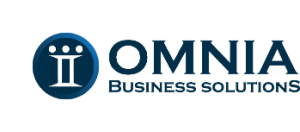Businesses keep on growing and changing and so does the way you manage your books and report on your success. When your current accounting software no longer meets your needs, it’s important to consider whether there are alternate solutions to help you manage your business.
When looking for new software you should consider the following items;
- Scalability: Ensure that the accounting software you are looking at can accommodate your business’s current and future growth. Consider the number of users who can access the software simultaneously and if it can handle increasing transaction volumes without performance issues. Also consider if there will be any additional charges when growing the business.
- User-Friendliness: Regardless whether your business is growing or stable, the accounting software must be useable and more importantly allow you to self-service information. The software should have an intuitive interface, streamlined workflows, and comprehensive documentation or training resources to facilitate user onboarding.
- Security and Data Protection: Your financial data is sensitive, so ensure that the accounting software has robust security measures in place. Look for features like data encryption, access controls, regular backups, and compliance with relevant data protection regulations. Always ensure that the software provides two way authentication to keep your information safe.
- Reporting and Analytics: Consider the reporting capabilities of the software. It should provide customisable financial reports, dashboards, and analytics to help you gain insights into your business’s financial health and make informed decisions.
- Integration Capabilities: Check if the software integrates seamlessly with other systems and tools you use, such as CRM, payroll, or inventory management software. Integration eliminates manual data entry and improves data accuracy. Most accounting softwares are great “jack of all trades” but when a business outgrows these functions and requires complex solutions you want to make sure they integrate back to your core financial platform.
- Pricing and Cost: Compare the pricing models of different software options. Consider factors such as upfront costs, ongoing subscription fees, additional module costs, and potential customisation or implementation expenses.
- Customer Support: all the latest software’s have support, however not all are the same. Consider how you will be supported with the software and are there any escalation points. Look at a software where there are accredited support firms to help you implement and maintain the software.
- Mobile Accessibility: In today’s mobile world, having access to accounting data on the go is critical. Check if the software offers mobile apps or web access optimised for mobile devices.
- Features and Functionality: Assess the features and functionality offered by the new software. Determine if it covers the core accounting needs such as general ledger, accounts payable/receivable, invoicing, financial reporting, budgeting, and tax management. Additionally, consider any specific requirements unique to your business, such as inventory management or project accounting.
These are only some of the key items to consider when looking at whether your current software is good enough or whether you need to find a better solution. Keep in mind that as your business grows so does its needs.
At Omnia Business Solutions we have completed many fit-gap analysis where we compare your business requirements to software solutions and help you identify the best solution for your business.
Furthermore, we are also accredited with some of the best practice solutions on the market and can provide unbiased feedback on what your business needs.
Have a chat with us today.


